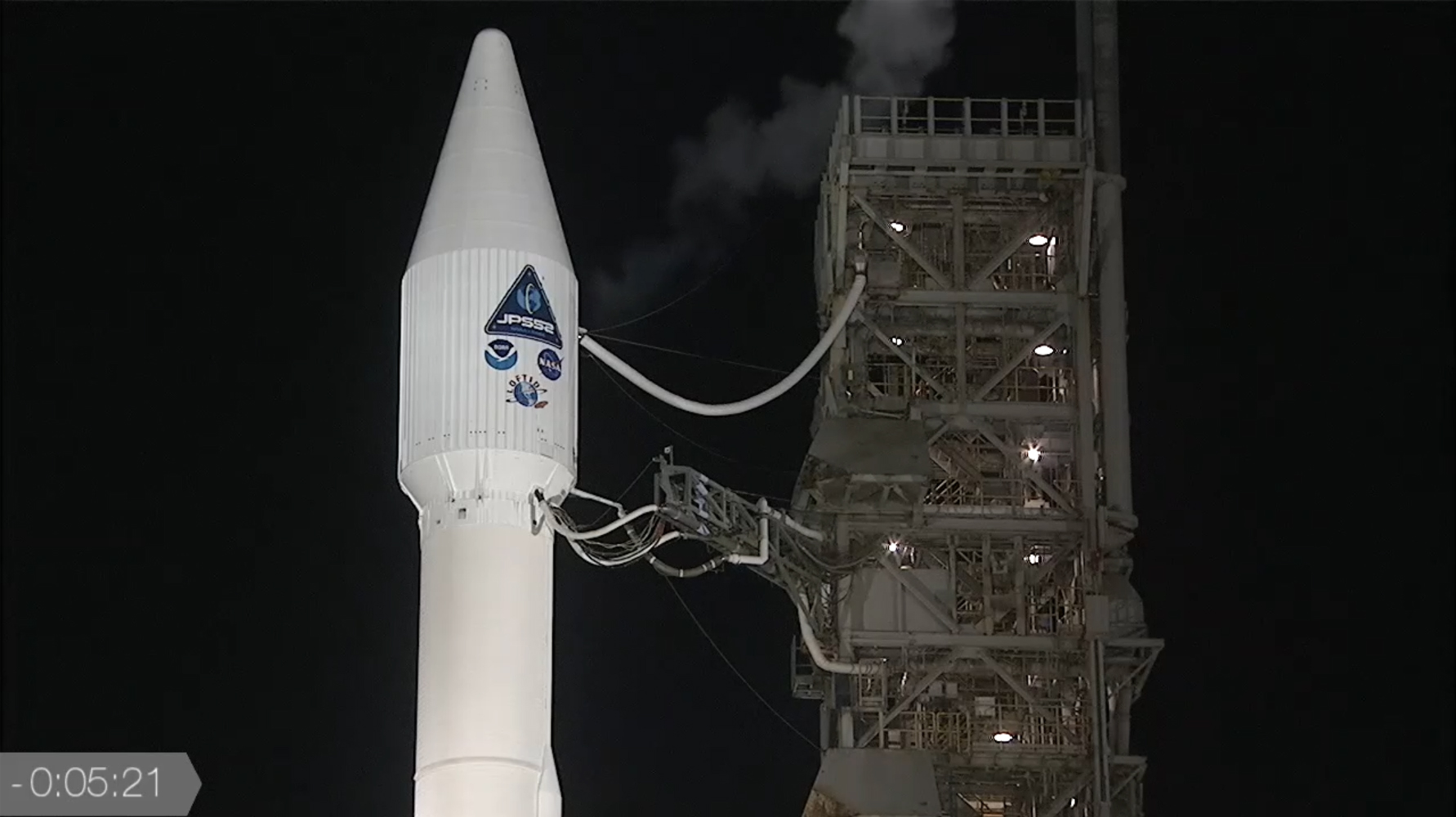
The launch director has just given the National Oceanic and Atmospheric Administration’s (NOAA) Joint Polar Satellite System-2 (JPSS-2) satellite mission a ‘go’ for launch! Mission and launch managers are counting down to the launch of the United Launch Alliance (ULA) Atlas V 401 rocket from Space Launch Complex-3 at Vandenberg Space Force Base in California. Launch is scheduled less than five minutes from now.
JPSS-2, and NASA’s Low-Earth Orbit Flight Test of an Inflatable Decelerator (LOFTID) which is hitching a ride, should reach the desired orbit just over 28 minutes into flight. A single burn of ULA’s Centaur upper stage will place JPSS-2 into a sun-synchronous, polar low-Earth orbit for deployment. Two subsequent burns by Centaur will lower the altitude and put LOFTID on a re-entry trajectory.
This will be the 41st flight of the Atlas V 401 rocket, the most flown of all the configurations. This rocket, designated AV-098, features a four-meter-diameter Extended Payload Fairing (EPF), no solid rocket boosters and a single RL10C-1 engine on the Centaur. The JPSS-2 launch will be the 301st and final Atlas mission from Vandenberg dating back to 1959, as ULA transitions to its Vulcan rocket.
JPSS-2 is currently the last mission contracted by NASA’s Launch Services Program, based at the agency’s Kennedy Space Center in Florida, to fly on the venerable Atlas V and marks the 100th primary mission for the program since 1998.
